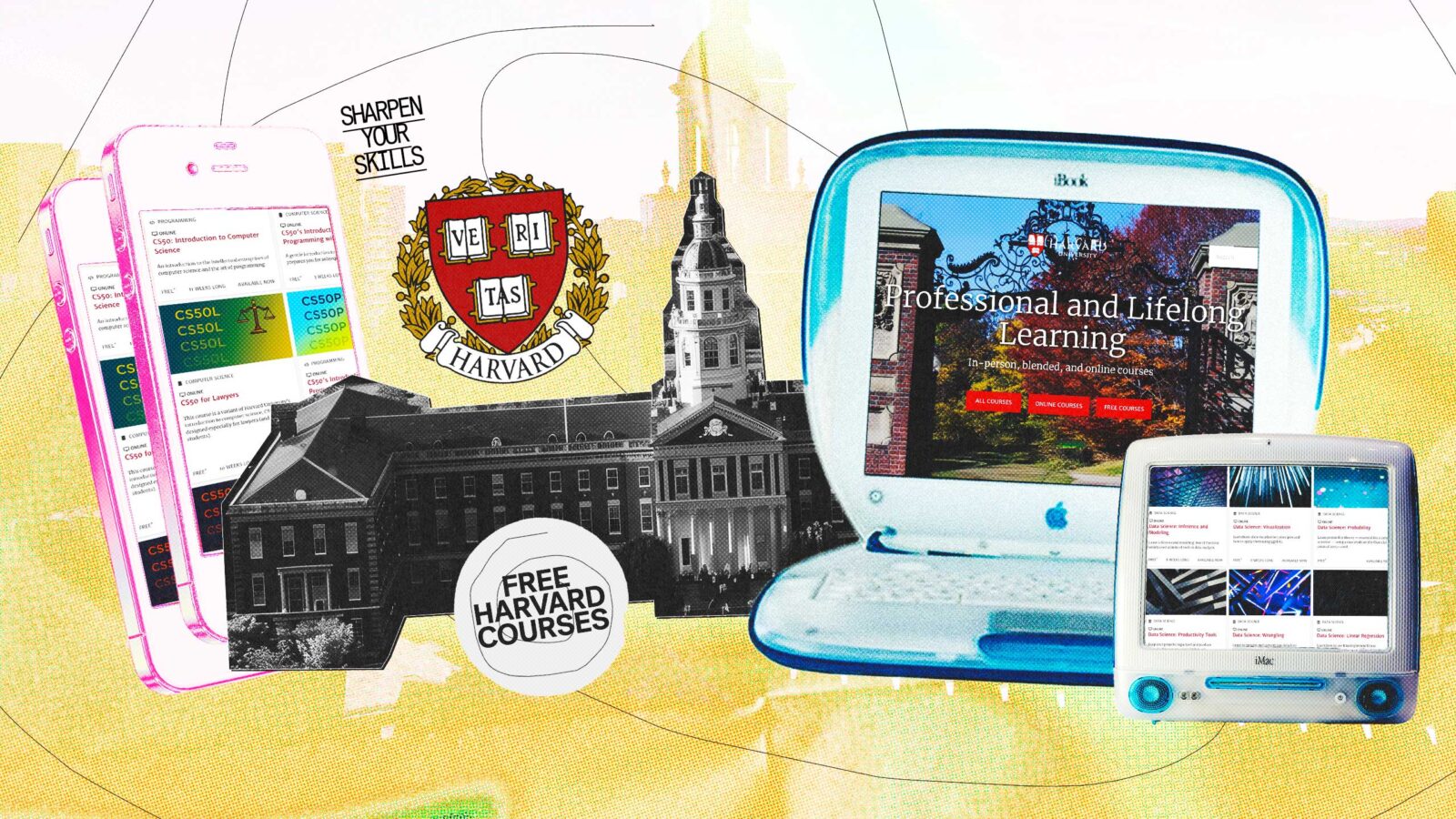Channel your inner Elle Woods and get some Harvard lessons under your belt—but for free!—with these courses.
Related: 7 Platforms That Offer Free Online Classes and Courses
Have some time on your hands? Want to get those gears in your brain grinding? Get a load of these free online courses offered and taught by Harvard University! Using Harvard materials, taught by Harvard professors, try out some of these self-paced courses to get those brain juices flowing.
Do note that to get a verified certificate of completion for these courses, you have to pay certain amounts (over $100, usually). However, you can audit the classes for free, meaning you get to study all the learning material at your own pace with no cost. There just won’t be any certificates afterward, but if you’re just in it for the love of learning or to gain new skills, then audit away.
FREE COURSES FROM HARVARD
Though we may perceive these courses from Harvard as top-of-the-line learning, it’s important to always consider who is teaching these lessons, how they are delivered, under what institutions, and in what contexts. Exercise your own critical thinking as you’re presented with the learning material for each course. Regardless, cultivate your curiosity and put on your thinking caps—it’s a great opportunity to take!
And don’t worry—not all of these courses involve data science or coding (known to be some of the most popular courses to take online). We’ve got a few here for those interested in the humanities, arts, and social sciences as well, and the entire Harvard course library has plenty more to browse. Check some of them out below.
COMPUTER SCIENCE

Put those typing skills to work by taking the CS50 program on edX x Harvard University! They don’t just offer one class, they offer a full suite of courses that will develop your technical computer science skills—get an intro to Python, JavaScript, cybersecurity, and more.
TANGIBLE THINGS

Recognizing the links between objects, people, and history is perhaps something we should develop further to deepen our understanding of humanity. Tangible Things will give insight into the work of museum curation, historical analysis of artifacts, and the connection of items with memory and culture. There’s also a similar course that centers on cultural artifacts that tell the stories of women in America throughout the 20th century.
BACKYARD METEOROLOGY

Want to avoid getting struck by lightning—a far-fetched and yet very valid fear? Or want to learn how to do what the weather people on the news do? Backyard Meteorology got you. If the wind blows you toward this course, get ready to look up at the sky and get those charts handy.
JUSTICE

This philosophy course offers a critical examination of our notions of justice. One of the most popular courses at Harvard, and the first course to be made available online and on TV for free, Justice endeavorers to teach “a deeper sense of the philosophy that underlies modern issues,” “an understanding of social and criminal justice,” and “the ability to better articulate and evaluate philosophical arguments and ask philosophical questions.”
SHAKESPEARE
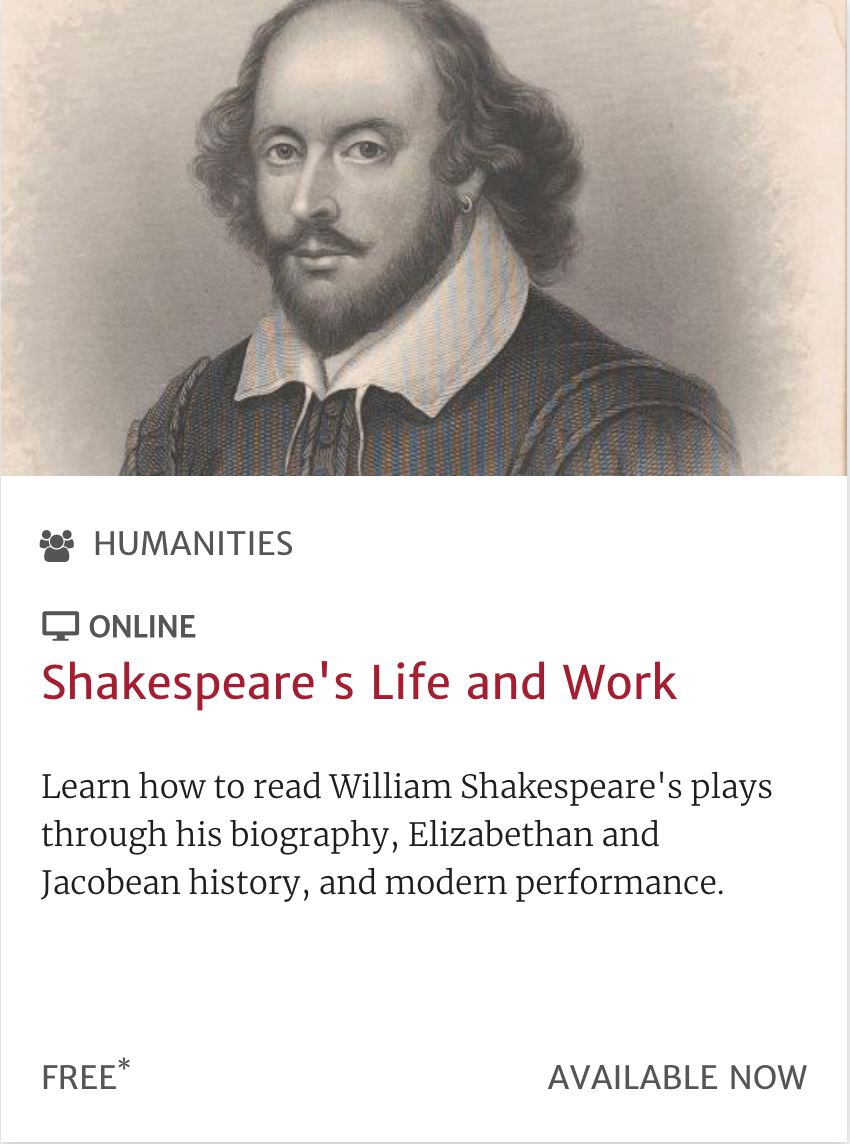
Interested in the Bard? Harvard is offering a course not just on William Shakespeare’s life and work, but also three explorations of certain characters and plays he’s written: The Ghost (Hamlet), Shylock (The Merchant of Venice), and The Moor (Othello).
HEALTH & CLIMATE CHANGE

As climate change intensifies and hazards come aplenty, it’s pertinent to study how these human-exacerbated global changes are affecting public health, nutrition, and disease prevention and control. Be proactive and learn how we can mitigate these effects, all while joining the call to take global action action climate change with The Health Effects of Climate Change.
BIOETHICS

According to the course description, “Bioethics provides an overview of the legal, medical, and ethical questions around reproduction and human genetics and how to apply legal reasoning to these questions.” If you’re a science- or law-inclined academic looking to expand your knowledge of genetics, reproductive technologies, biology, ethics, and the laws encompassing those subjects, this course is for you. It’s an introductory course, too, so don’t feel too intimidated!
CHILDREN’S RIGHTS & PROTECTION

If you’re interested in pursuing a career in the development, legal, or humanitarian sector, this course on children’s rights and protections might be for you. By exploring, connecting, and evaluating frameworks, strategies, approaches, and case studies in the field of child protection, you can start developing a “child-centered systems approach to preventing and responding to violence, exploitation, and abuse against children.”
LEADERSHIP & LEARNING

Young and aspiring leaders will appreciate this course on leadership and learning, where personal theories of learning and the hows, whats, wheres, and whys of learning and leadership will be examined. In Leaders of Learning, you will “explore learning, leadership, organizational structure, and physical design,” and explore how all this fits into the shifting landscape of learning.
DIGITAL HUMANITIES
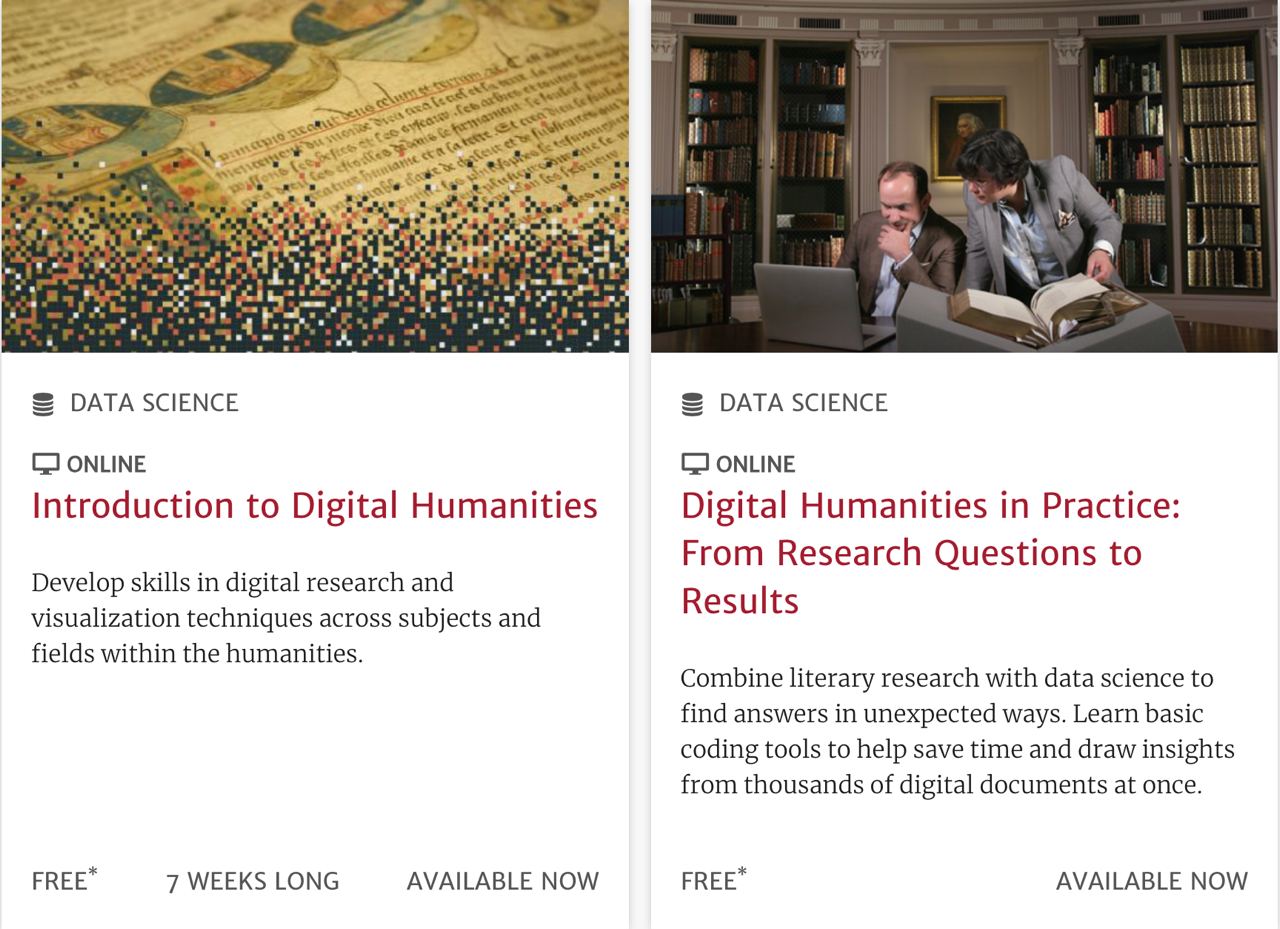
Expand your data and research knowledge with the Digital Humanities courses, which will “show you how to manage the many aspects of digital humanities research and scholarship.” Learn the know-hows and how-tos of tools and functions that will enable you to scour, analyze, and interpret digital data pertaining to historical and sociological artifacts.
LITERATURE FROM AGES AND PLACES

From Ancient to Asian Literature, classics to contemporaries, Homer to Voltaire to Chang, these literature courses will give you your dose of history, mythology, and culture as you learn how words have transcended borders and languages and transformed culture and the world as we know it today.
RHETORIC

You don’t even have to be interested in going into politics, but learning how to communicate comprehensively and persuasively (and how to dissect such communication when it’s directed towards you) is a valuable skill to have. Try out the Rhetoric course to improve those persuasive writing and speaking skills!
DATA SCIENCE
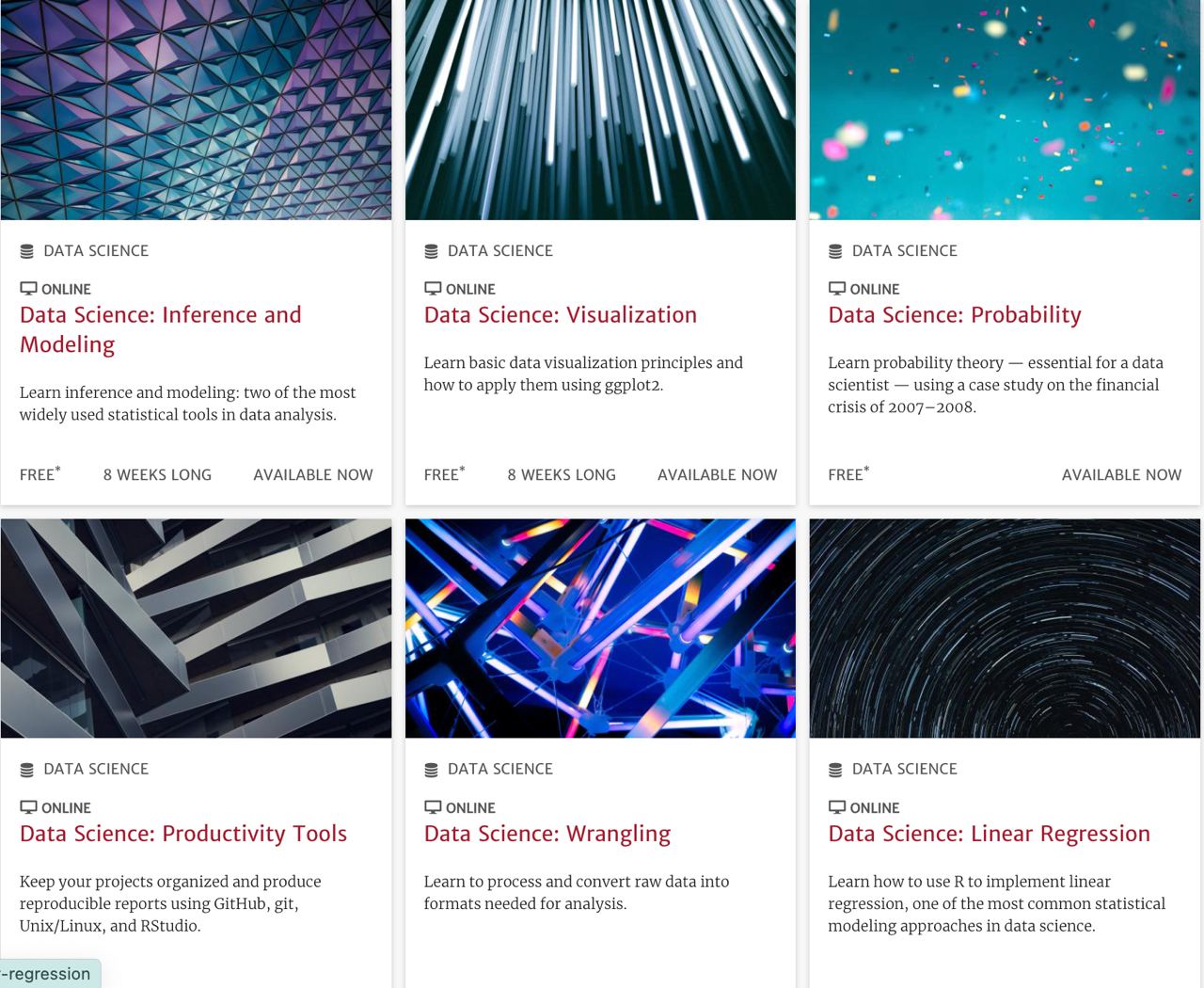
Similar to the CS50 program, the Data Science professional certificate program offers courses in data science, guiding you through the field and exploring topics such as data visualization, probability, linear regression, and more. You can even produce your own capstone study! Again, it costs money to get the certification, but auditing the class and learning the material is free of charge.
HUMANITARIAN RESPONSE TO CONFLICT & DISASTER

There are far too many conflicts, crises, and disasters happening around the world—increasing only as the years go by. In Humanitarian Response to Conflict and Disaster, you will explore the “ethical and professional principles that guide humanitarian response to conflict and disaster.” You will also prepare to recognize emerging challenges in the humanitarian field in order to engage with them in responsible ways and be “informed and aware humanitarian practitioners, scholars, policy-makers, and global citizens.”
CRITICAL THINKING & ARGUMENTATION
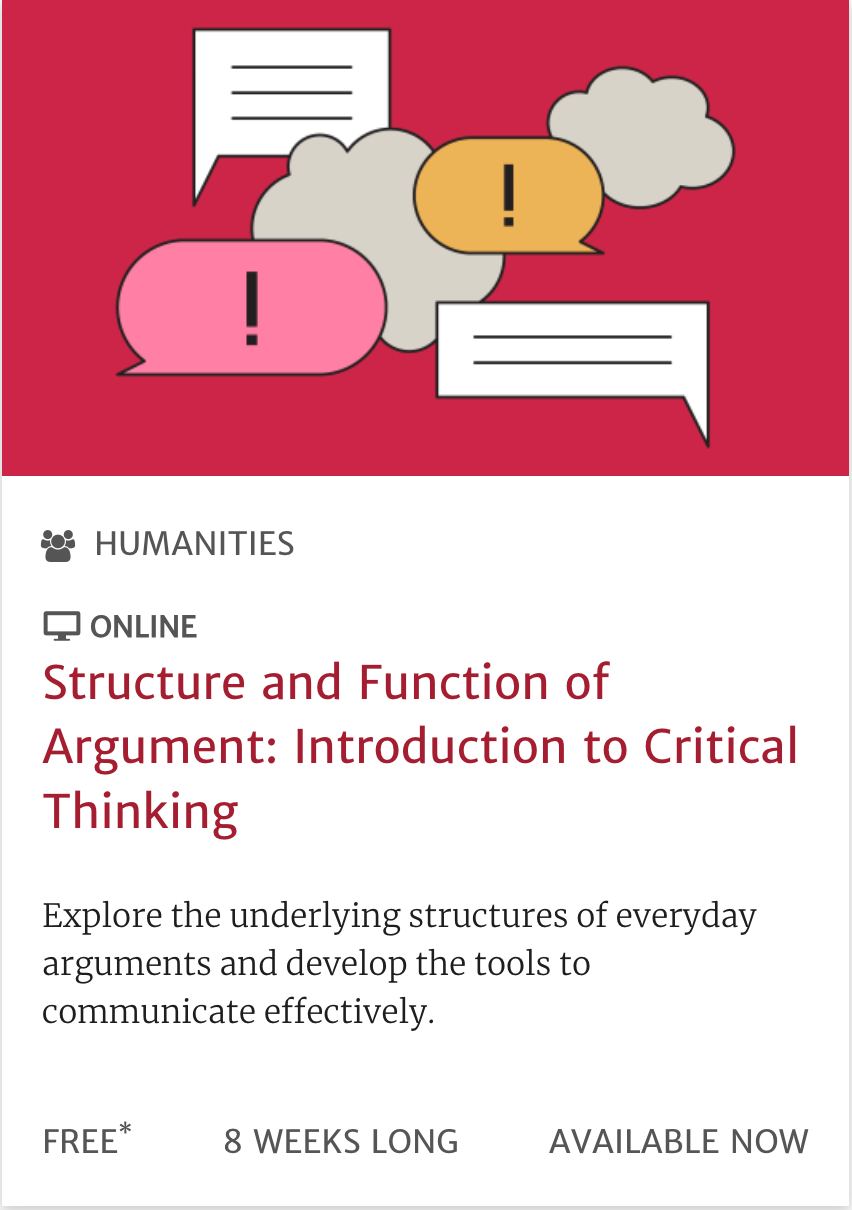
Thinking often comes as natural to us as breathing, but there seems to be a consensus that people aren’t thinking critically as often as they should. Do we even know how to think critically? Reexamine your own ways of thinking and argumentation and recognize how critical thinking can help improve your communication and comprehension with this free Harvard course. Also get a chance to learn how to dissect arguments and improve your own understanding to craft convincing ones of your own.
Continue Reading: 14 Interesting Courses You Didn’t Know Are Being Offered In The Philippines
